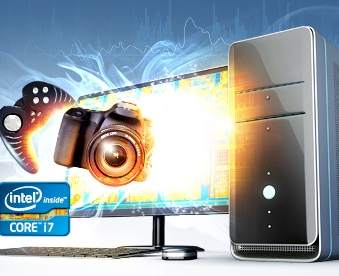Declining x86 chip demand from PC manufacturers has prompted Intel to slash its third-quarter sales prediction.
”It’s worse than everyone expected,” Evercore Partners analyst Patrick Wang told Bloomberg. “[Santa Clara’s] consumer PC business is getting whacked.”

Vijay Rakesh, an analyst at Sterne Agee, told Reuters that the upcoming introduction of tablets running Windows 8 RT for ARM-based chips is creating “additional uncertainty” for manufacturers attempting to predict what types of new devices will catch on with consumers.
”The issue is, can we have x86- and ARM-based systems? That’s still a question mark,” Rakesh explained. “And then, what is the pricing of these systems versus the iPads and Kindles and other tablets that are out there?”
Meanwhile, Moor Insights & Strategy analyst Patrick Moorhead noted that the macroeconomic environment is primarily responsible for driving the above-mentioned cuts.
“ARM lowered its expectations and now Intel is doing the same based on PC demand. The bright spot for Intel is that the data center business is moving along quite nicely,” Moore said in an industry note obtained by AllThingsD. “When the economic clouds clear, Intel will be a good position with their products to capture the demand when it does appear.”
Rakesh expressed similar sentiments in an industry note sent to TG Daily.
“Intel is saying demand is affected by OEMs reducing inventory (ahead of Win8), weaker PC demand and lower emerging market BRIC demand,” the analyst confirmed.
“Multiple challenges in the PC space [remain], with slower Ultrabooks, weaker OEM commentary and Win8 pricing affecting a more cautious OEM-ODM outlook. With Intel guiding SepQ down q/q from the JunQ, we believe it could be headwinds for the rest of the PC peers including AMD and Nvidia.”






